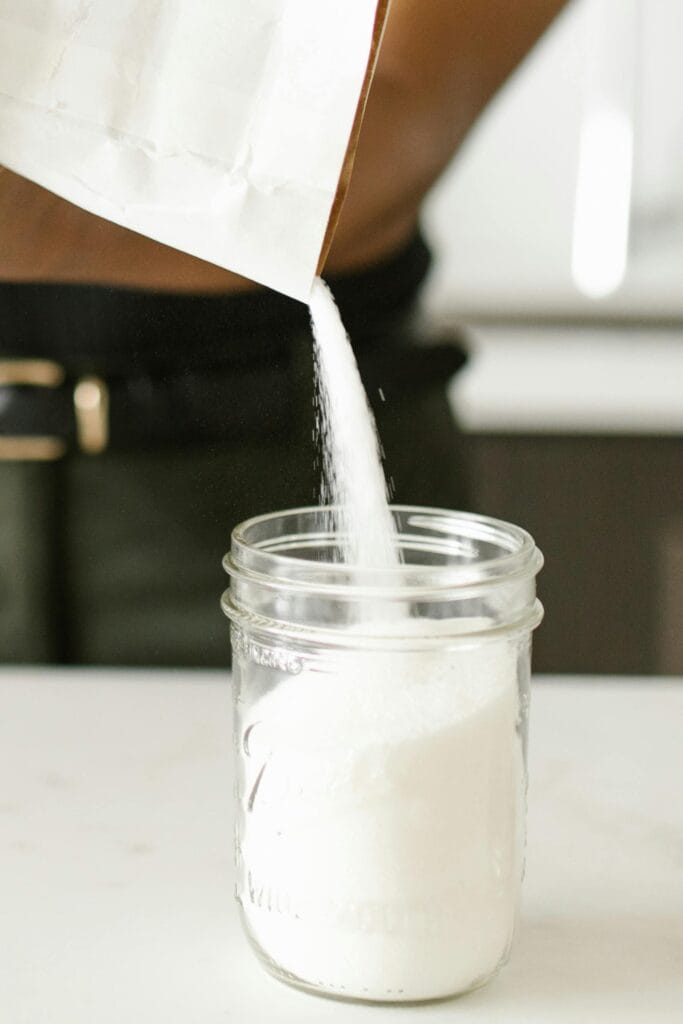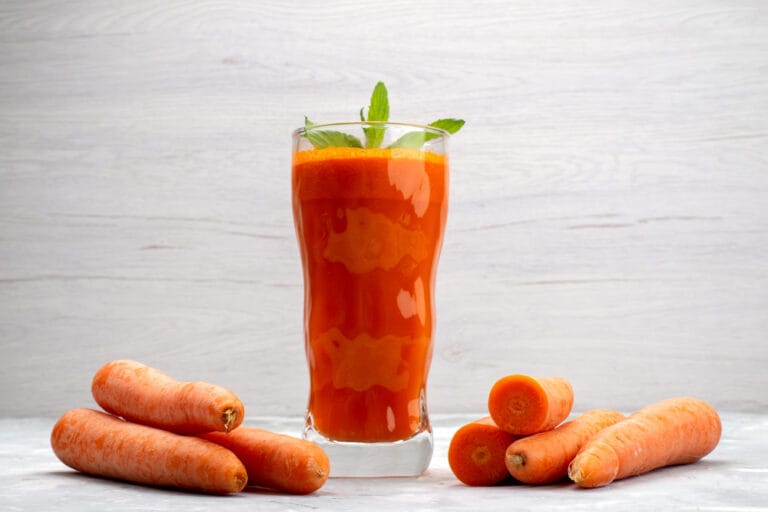FREE SHIPPING OVER $50
Forget the Injections—Doctors Are Buzzing About This Sugar Alternative That Could Mimic Ozempic for Fat Loss

For years, we’ve been told that weight loss is a simple equation: calories in, calories out. But anyone who has tried to shed stubborn pounds knows it’s far more complicated than that. You’ve battled cravings, hit plateaus, and maybe even felt like your body was working against you. In recent years, a new class of powerful weight loss drugs, like Ozempic, has entered the conversation, offering a new hope for many. These injections have become a cultural phenomenon, but they come with significant costs, side effects, and a need for a doctor’s prescription.
What if there was a different way? What if the key to managing your appetite and boosting your fat loss wasn’t in a syringe, but in a simple, natural sugar alternative? Doctors and researchers are now buzzing about a unique sweetener that is showing some of the same metabolic effects as Ozempic.
The Ozempic Craze: A New Hope, A New Problem
Before we dive into the science of allulose, it’s important to understand why drugs like Ozempic have become so popular. These medications work by mimicking a hormone called GLP-1, which your body naturally produces. This hormone tells your brain that you’re full, slows down digestion, and helps to regulate blood sugar. The result is a powerful suppression of appetite and a significant decrease in cravings, making it easier for people to stick to a healthy diet and lose weight.
However, the “miracle drug” narrative comes with a few major catches. The injections can be incredibly expensive, they often come with unpleasant side effects like nausea and constipation, and the supply has struggled to keep up with demand. This has left many people feeling like they are on the outside looking in, desperately searching for a natural, more accessible alternative.
Introducing Allulose: The Sweetener That Breaks All the Rules
This is where allulose enters the conversation. Allulose is a rare sugar, a natural monosaccharide found in small amounts in things like figs, raisins, and jackfruit. Its taste is remarkably similar to table sugar, but this is where the similarities end. While other popular sweeteners like sucralose and saccharin are artificial, and others like stevia and erythritol have a distinct aftertaste, allulose has a clean, simple flavor.
But its most groundbreaking property isn’t its taste—it’s how your body processes it. Unlike table sugar, allulose is almost completely absorbed by your small intestine and then excreted in your urine. Your body doesn’t metabolize it for energy, which means it has virtually zero calories and, most importantly, does not raise your blood sugar or insulin levels.
The “Ozempic-Like” Effect: How Allulose Fights Fat
This unique metabolic profile is the reason researchers are so excited. While it doesn’t work in the exact same way as Ozempic, allulose has been shown to have a number of powerful effects that can help you with your weight loss journey.
1. It Stabilizes Blood Sugar and Insulin
The primary driver of fat loss is controlling insulin levels. When you eat sugar, your blood sugar spikes, which in turn causes your pancreas to release insulin. This hormone helps to get the sugar out of your bloodstream and into your cells. But a constant stream of insulin can lead to insulin resistance, a condition that makes it nearly impossible to lose weight. Allulose helps you avoid this problem altogether by bypassing the system. You get the taste of sugar without the metabolic spike.
2. It Boosts Fat Oxidation
This is where the science gets truly fascinating. In several human and animal studies, allulose has been shown to increase the rate of fat oxidation, which is simply the process by which your body burns fat for energy. Researchers believe that by not being used as fuel, allulose forces your body to look for other sources of energy—specifically, stored fat.
3. It May Suppress Appetite and Cravings
While the exact mechanism is still being studied, some research suggests that consuming allulose may lead to a reduced appetite and fewer cravings. This could be due to its effect on hormones that regulate hunger and fullness. The result is similar to the effects of Ozempic and other GLP-1 medications—you feel full faster and for longer, making it easier to stick to a lower-calorie diet.
4. It Fights Insulin Resistance
Insulin resistance is a hallmark of prediabetes and type 2 diabetes, and it’s a major roadblock for weight loss. By providing a sweet taste without causing an insulin spike, allulose can help to improve insulin sensitivity over time. This means your body becomes more efficient at using insulin, making it easier to lose weight and maintain a healthy metabolism.
The Practical Guide: How to Use Allulose for Weight Loss
Allulose is not a magic bullet, but it can be a powerful tool in your fat loss toolbox. To use it effectively, you need to understand how to incorporate it into your daily routine.
- Start Small: Allulose is a naturally occurring sugar, but like many sugar alcohols, it can cause digestive discomfort in large amounts. Start with a small serving, like a teaspoon or two, and see how your body reacts before increasing your intake.
- Replace, Don’t Just Add: The goal is to use allulose to replace high-calorie, high-sugar foods and drinks in your diet. Don’t add it to an already high-sugar diet and expect results. Use it in your coffee, tea, and smoothies to replace regular sugar.
- Use It for Baking and Cooking: Allulose has a similar texture and browning effect as sugar, making it an excellent one-to-one replacement in most recipes. It’s a great way to enjoy your favorite baked goods without the blood sugar consequences.
- Pair It With a Healthy Lifestyle: The best results come from using allulose as part of a comprehensive weight loss plan. This means you still need to focus on a diet rich in whole foods, protein, and fiber, and get regular exercise.
Is Allulose Safe? What Doctors and Research Say
Before you jump into a new product, it’s natural to be concerned about safety. Allulose has been studied extensively, and the results are overwhelmingly positive. In 2012, the FDA gave it “Generally Recognized as Safe” (GRAS) status, a designation that confirms its safety for consumption.
The most common side effect is some digestive discomfort if you consume too much at once. However, unlike some other sugar alcohols, allulose is less likely to cause gas and bloating. A little goes a long way, and your body adapts to it over time.
Conclusion
The conversation around weight loss is changing. While medications like Ozempic offer a glimpse into the future of metabolic health, they are not the only solution. The hidden power of allulose lies in its unique ability to give you the sweet taste you crave without the blood sugar spikes that are a primary driver of fat storage.
It’s not a miracle cure, but it is a powerful ally. By swapping out sugar for allulose, you can take a proactive step toward managing your cravings, stabilizing your blood sugar, and unlocking your body’s natural ability to burn fat. It’s a simple change that could have a profound impact on your health and give you a sense of control over your weight loss journey that you never thought possible.
Related Articles
- She Lost 15 Inches of Dangerous Belly Fat and Reversed Diabetes—Doctors Say You Can Too
- Still Struggling to Lose Weight? These 6 Everyday Habits Might Be the Real Problem
- She Halved Her Body Fat in Just 60 Days—Here Are the 7 Daily Habits That Made It Happen
- TikTok Calls Okra ‘Nature’s Ozempic’—Doctors Reveal If It Really Works for Weight Loss
- Get Shredded in 12 Weeks: The Ultimate Program to Stay Jacked Through 2025







